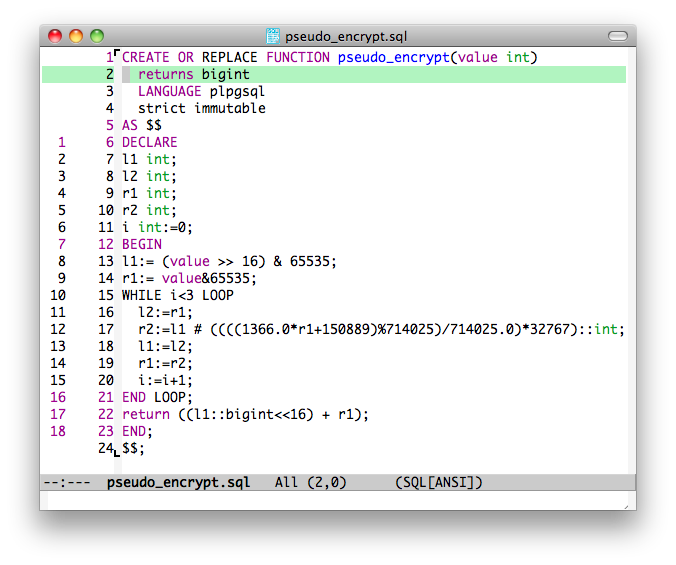
Current el-get status is stable, ready for daily use and packed with extra features that make life easier. There are some more things we could do, as always, but they will be about smoothing things further.
Latest released version el-get version 2.1 is available, with a boatload of features, including autoloads support, byte-compiling in an external clean room Emacs instance, custom support, lazy initialisation support (defering all init functions to eval-after-load), and multi repositories ELPA support.

If you’ve not been following along, you might have missed it: it appears to me that even today, in 2011, mail systems work much better when setup the old way. Meaning with a local MTA for outgoing mail. With some niceties, such as sender dependent relayhost maps.
That’s why I needed M-x mailq to display the mail queue and have some easy shortcuts in order to operate it (mainly f runs the command mailq-mode-flush, but per site and per id delivery are useful too).

A while ago I’ve been fixing and publishing pgsql-linum-format separately. That allows to number PL/whatever code lines when editing from Emacs, and it’s something very useful to turn on when debugging.
The carrets on the fringe in the emacs window are the result of (setq-default indicate-buffer-boundaries 'left) and here it’s just overloading the image somehow. But the idea is to just M-x linum-mode when you need it, at least that’s my usage of it.

Following up on the very popular emacs-starter-kit, I’m now proposing the emacs-kicker. It’s about the .emacs file you’ve seen in older posts here, which I maintain for some colleagues. After all, if they find it useful, some more people might to, so I’ve decided to publish it.
What you’ll find is a very simple 128 lines Emacs user init file, based on el-get for external packages. A not so random selection of those is used, here’s the list when you hide some details:

I’m using Desktop Save Mode so that Emacs knows to open again all the buffers I’ve been using. That goes quite well with how often I start Emacs, that is once a week or once a month. Now, M-x ibuffer last line is as following:
718 buffers 19838205 668 files, 15 processes That means that at startup, Emacs will load that many files. In order not to have to wait until it’s done doing so, I’ve setup things this way:
